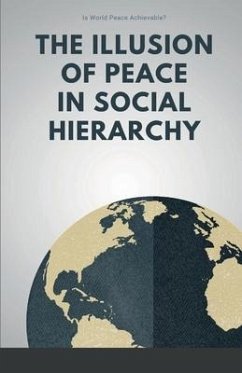"The Illusion of Peace in Social Hierarchy" is a thought-provoking book that challenges the widely-held belief that world peace is attainable. The author explores the concept of peace from a variety of perspectives, ranging from intrapersonal to international relations, and examines the flaws in the structures that have been put in place to achieve peace, such as the United Nations and other organizations. The book is divided into three parts. In part one, the author critiques the zeitgeist of peace and highlights the difficulties in achieving it through approaches such as pacifism and democratic peace theory. The flaws of the current system are pointed out, and the author emphasizes the need for a more realistic approach to peace that acknowledges the complexity of human nature. In part two, the author proposes an alternative strategy for maintaining peace through deterrence. Drawing on game theory concepts like the Nash Equilibrium, the author argues that deterrence can be an effective way to maintain peace in international relations. Reciprocal altruism is also discussed as a strategy for maintaining peace in social situations. Finally, in part three, the author introduces Nietzsche's concept of the Übermensch and argues that the journey to becoming an Übermensch begins by realizing that peace is the creation of man and that the concept of world peace is no longer pertinent for promoting peace among individuals and states. The author also emphasizes the importance of rejecting the norms of society and living by one's own moral code. Overall, "The Illusion of Peace in Social Hierarchy" is a fascinating and thought-provoking book that challenges conventional thinking about peace. The author draws on a wide range of sources, from philosophy to game theory, to present a nuanced and complex argument that is sure to stimulate discussion and debate. Anyone interested in the topic of peace and international relations will find this book to be a valuable addition to their reading list.
Hinweis: Dieser Artikel kann nur an eine deutsche Lieferadresse ausgeliefert werden.
Hinweis: Dieser Artikel kann nur an eine deutsche Lieferadresse ausgeliefert werden.








